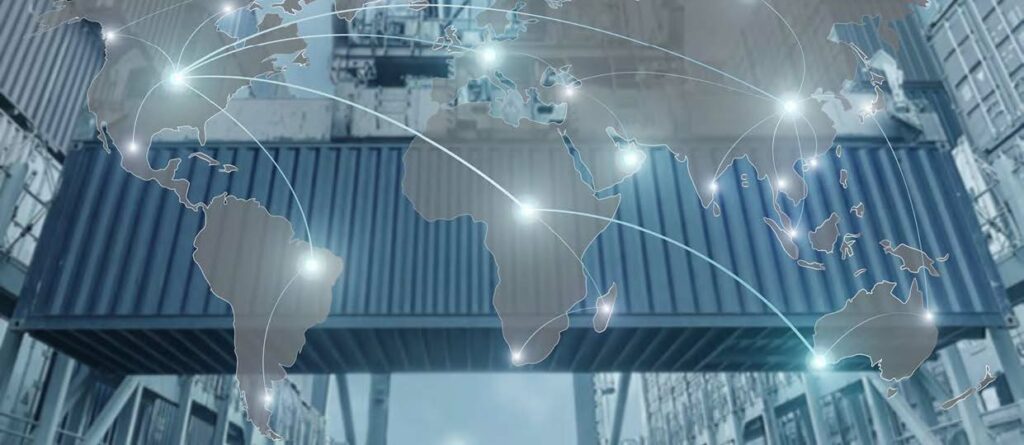- Perspective – April 2024
- Columbus Stainless Advert
- Best of the GPS E-Newsletter
- Novametal South Africa Advertorial
- It’s time to move away from the global plastic addiction to sustainable stainless
- The SASSDA and Columbus Steel Awards are back and they’re better than ever!
- A critical juncture for local stainless steel
- Stainless Steel the ‘salt of the earth ’ when it comes to desalination
- Professional Profile : Nthabiseng Sebelebele
- A Fond Farewell
- West Africa’s economic boom sparks global competition
- Opportunity in West Africa: A focus on Côte d’Ivoire
- Laser welding – a shining light of precision
- NDE Advert
- Membership Benefits
- Fastenright Advert
- Member Profile
- Sassda News
- Membership News
West Africa’s economic boom sparks global competition

West Africa is experiencing a rapid growth spurt across several key sectors, including mining, oil & gas, urbanisation, agri-industry and infrastructure. As a result, it has become the focal point of established and emerging economic powers globally, creating fierce competition from countries like Morocco, Turkey, the Gulf States, and Egypt.
Unfortunately, South Africa’s lack of land links to West Africa’s growth areas poses a significant obstacle. However, opportunities for mining still exist in several countries, such as Ghana, Côte d’Ivoire, Guinea, Liberia, and Sahel States, albeit with some security concerns.
As global disruptions continue to occur, regional supply chains and self-reliance are becoming increasingly critical. In some regions, South Africa’s distance and time-to-market advantage is key, while the African Continental Free Trade Area (AfCFTA) is expected to provide some level of preference, though it is not a panacea. By the end of 2024, 31 countries will be trading under the AfCFTA, including South Africa, emphasising the need to leverage this agreement’s benefits in key markets.
In addition, competition from Asian and MENA countries is expected to intensify, further emphasising the need to capitalise on AfCFTA advantages in significant markets. At present, there are approximately $18-Billion worth of projects in progress, with approximately half having no declared value yet. This number could potentially increase to $40-Billion, including infrastructure in some projects.
Key countries to consider
The key regional hubs in West Africa remain Ghana and Côte d’Ivoire, with non-SACU/SADC countries accounting for over 62% of Sub-Saharan African projects. At present, South Africa’s share of supply is low. However, there are signs of a more coordinated regional approach emerging, particularly with significant mining projects in Guinea and Liberia. However, political instability in Sahel poses a threat to regional development. Regional supply from Abidjan could play a critical role, with Cote d’Ivoire being the primary regional trade hub, with excellent reach across most of the region. Abidjan offers access to all key mining hubs, with Ghana being another hub with good reach, although not to the same extent as Cote d’Ivoire. Nigeria is not typically a regional hub, with most companies being inwardly focused, though this is changing. Most of the Nigerian export basket to Ghana is oil and gas-related.
A challenging environment
The business climate in West Africa is challenging, given the infrastructure deficits that impede trade and investment. These include power, roads, water, and ports, among other things. However, as countries look to modernise and privatise critical infrastructure, there is a real opportunity. Unfortunately, borders and bureaucracy continue to drive up costs, making matters more complicated.
Instability is another significant challenge, with coups in Niger, Burkina Faso, Mali, and Guinea over the last three years, causing significant disruptions to project activity. Additionally, attacks on mines and mine convoys in Mali, Burkina Faso, and Niger are forcing mines to shut down, with seven mines closing in Burkina since 2022.
Vying for prominence
Despite these challenges, global competition for resources and influence has created an environment of tremendous opportunity, particularly if managed correctly. However, there is still resentment in many countries against the West, with more progressive countries taking a pragmatic stance and reaping rewards. Companies from Asia are offering compelling alternatives, making the project environment highly competitive.
Currency weaknesses and debt burdens are other factors to consider. These issues can lead to defaults, project cancellations, and payment difficulties for imports. Therefore, businesses must be aware of these factors and utilise Exim facilities wherever possible.

